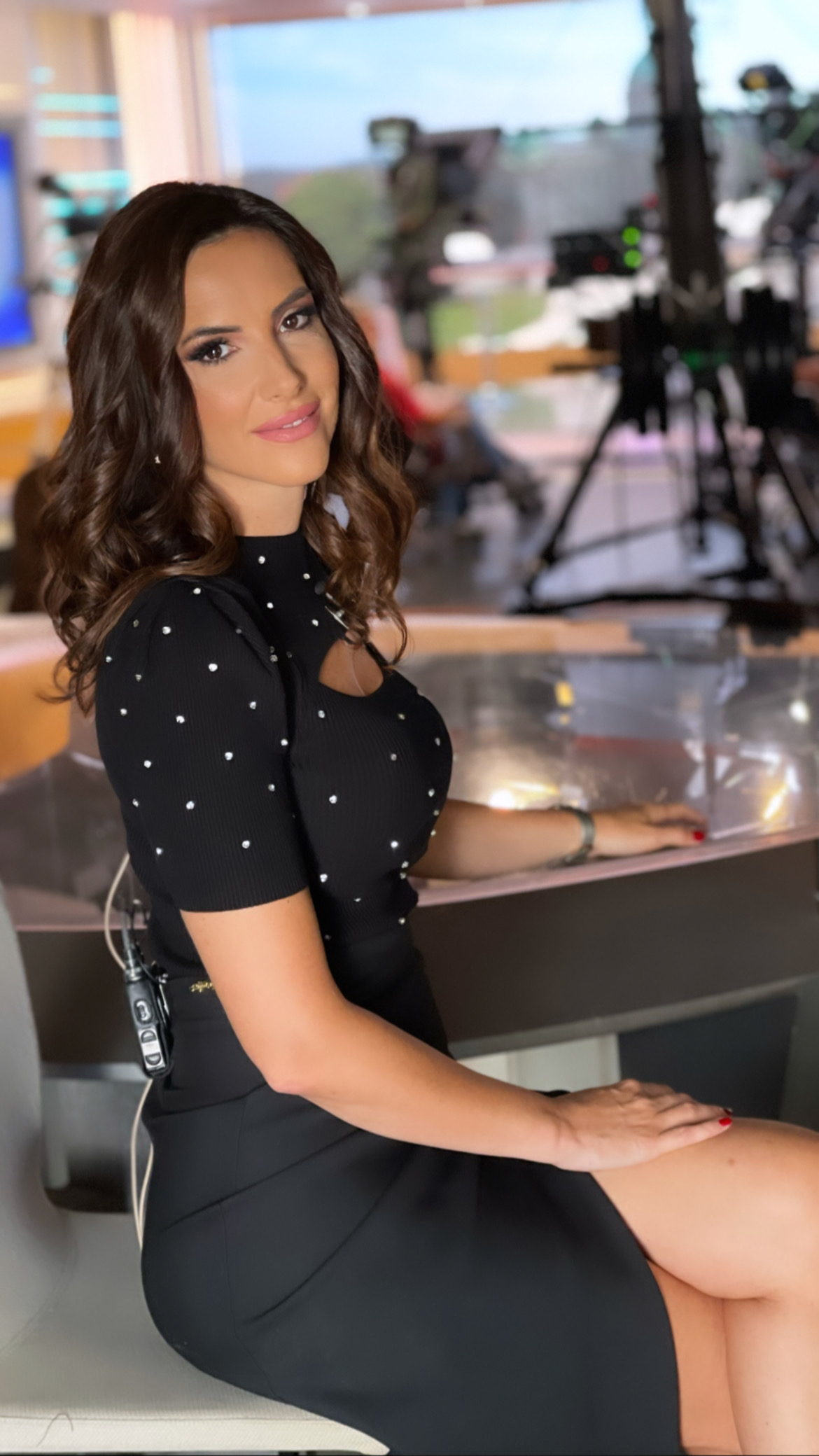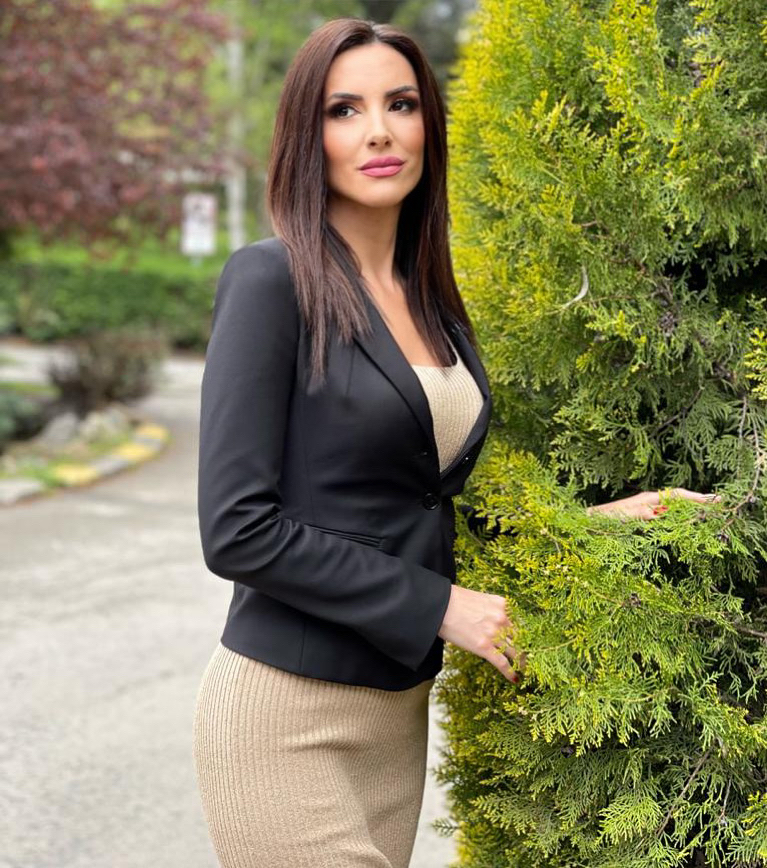I always try and make sure that all sides are equally represented
 In her extensive career, Marija Savić Stamenić managed to witness various different workplaces and challenges that shaped her into the experienced journalist she is today. We took our time to talk to her and discuss her professional history, her views on media freedom in Serbia and her overall perspective on standards of modern journalism.
In her extensive career, Marija Savić Stamenić managed to witness various different workplaces and challenges that shaped her into the experienced journalist she is today. We took our time to talk to her and discuss her professional history, her views on media freedom in Serbia and her overall perspective on standards of modern journalism.
During your career, you worked at B92, RTS and TV PRVA. Which of those periods would you single out as your favorite and why?
Everything is still incomparable with RTS. I spent 15 years there, where I matured as a journalist, primarily as a reporter. My favorite days are spent with the team on the field. Although it sometimes happened that we spent 15 hours at minus 10 or plus 40, I would never trade with those journalists who started their careers in the studio. The terrain is a special experience. At RTS, I became an editor from a journalist. RTS was the base. The rest was an upgrade.
You have mentioned in the past that it is very important for a journalist to “remain loyal to himself”. Have you managed to do it yourself?
That’s up to the viewers to judge. But, for me, being yourself doesn’t mean not having an attitude. But, if you are yourself, you cannot change your views as the wind blows, so one day you are the biggest critic of one policy and the next, the biggest fan of that same policy, depending on who pays you and how much. There is a word for that which isn’t so polite. I have not and will not change my views. Some like them, some don’t. That doesn’t mean that my shows are closed to people with different views. On the contrary. From politics to sports, I always try and make sure that all sides are equally represented. So far, I have largely succeeded. Although, it would be easier if those who claim that media darkness reigns in Serbia responded more often. Some of them told me that they can’t work on weekends and that 9 am is too early for them.
You don’t need to know anything about journalism if you are human
What advice would you give to young journalists?
To choose another job. And if they really want this, to never make compromises with the essence, to remember that the so-called small, but actually, big man is more important than politicians and their interests. And when that common man is disenfranchised, then only he matters, without compromise with anyone and anything. For example, when a crime happens in Ribnikar, the human dimension dictates to you to open a space for the parents of the murdered children without thinking about what they might say. When a mother loses her unborn child, you invite her to tell her story. There is no editorial policy, you don’t need to know anything about journalism if you are human.
What do you think separates successful journalists from others?
If you measure success with money, then it’s simple. For me, money has never been a priority, never the first and most important motive, neither in life nor in journalism. That’s how I was brought up. That’s why I think that anyone who does their job responsibly and with dedication, with passion and the desire to do more and better tomorrow is successful.

How would you rate the current state of media freedom in Serbia?
I think that the issue of responsibility is bigger and more important than freedom today. I am convinced that there is more freedom today than 12 years ago. There is no question that is not or should not be asked of public office holders, including the president of the state. You have both pro-government and opposition media. Someone will say that they are pro-government with a national frequency. But 12 years ago, not a single opposition television existed, neither with nor without a frequency. You have two powerful and clearly profiled opposition television stations, as well as many newspapers. That makes a huge difference compared to 2012.
But when we come to responsibility, that’s where I see the erosion of this profession. When I look at what happened in Slovakia, where Prime Minister Robert Fico was shot, I shudder. I’m thinking if we too have raised tensions and hatred to the point where someone can think it’s perfectly okay to pull the trigger. And it’s not ok. And it never will be, if we are human.
For me, money has never been a priority, never the first and most important motive, neither in life nor in journalism
If we are human, it cannot be okay for us to call someone Satan, evil, killer, sick, just because we don’t like his politics. If you are brainwashing your viewers every day by claiming that someone is “evil”, think about what you are doing.
Of course, the media are not the only ones responsible for the atmosphere of hatred. But, let us journalists start from ourselves, before it is too late. Let each of us try to see our responsibility and be better tomorrow than we are today, and even more responsible today than yesterday.
What challenges did you most often face in your profession, as a journalist, but also as a woman in that sector?
Many friends tell me that I am a masochist. They ask me why I call both, why I insist on dialogue and thus put myself in the line of fire. Why wasn’t I, like most others, who chose to sit in the studio every week in their small, or somewhat larger, circle of like-minded people. As long as I can, I will do this. Because I think it’s only right. They can still measure how many times I smiled and how many times I frowned in a conversation, but whether they want to admit it or not, they attack me precisely because my shows are proof that things can be different, that everyone can come and say what they want I only ask guests not to offend. Any criticism can be expressed with a decent dictionary. Šešelj, for example, once left my show because I didn’t let him participate in insulting me.
Who would you interview next and what would you ask them?
Robert Fico. How does he feel and who does he hold responsible for the assassination attempt?
Is there anyone you haven’t been able to reach that you wanted to?
Nemanja Matić. When I found out how much he helps people, especially in his village Vrelo near Ub, I wanted to do a story about it, but he didn’t want to. Of course, Putin has always been on that list, but I didn’t even try to get to him.